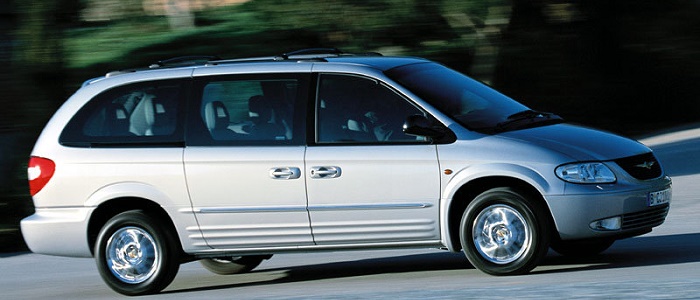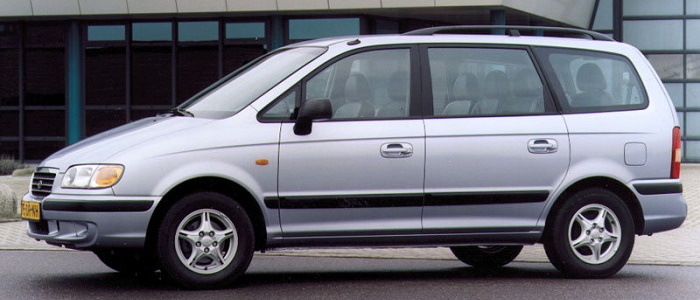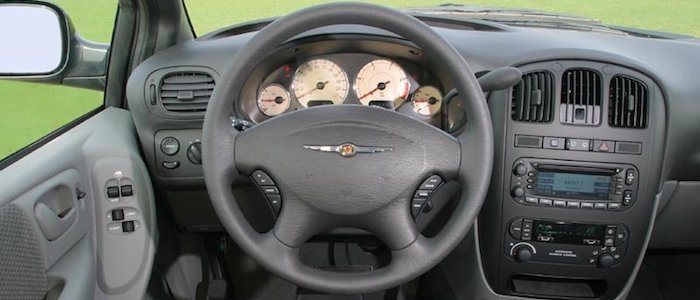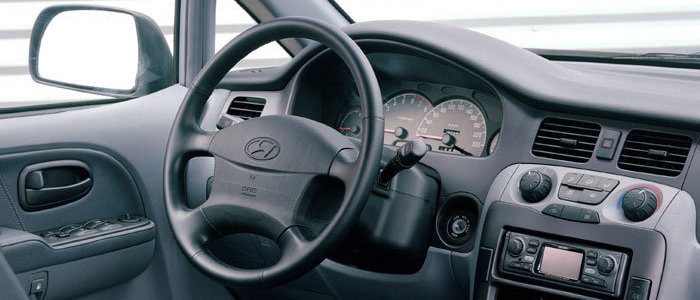Compare two cars
Compare any two cars and get our Virtual Adviser™ opinion
Dimensons & Outlines
Engine
Performance (manual gearbox)
Performance (automatic gearbox)
Expenses
Virtual Adviser's™ opinion
Well, these are two pretty similar cars we have here! It's only details that could potentially make the difference. Considering they both belong to the mpv segment and utilize the same 5-door MPV body style and the front wheel drive system, it all comes up to the specific petrol engine choice they offer. The first one has a Chrysler-engineered powertrain under the hood, a 6-cylinder, 12-valves 180hp unit, while the other one gets its power and torque from a 6-cylinder, 24-valves 167hp engine designed by Hyundai.
SafetyBoth vehicles got tested by European New Car Assessment Programme (Euro NCAP), with the Hyundai being a slightly better choice apparently. That aside, let's consider some other aspects which affect safety. Both vehicles belong to the mpv segment, which is generally a good thing safety-wise, but it doesn't do much to help us decide between the two. Furthermore, if we'd like to consider vehicle mass in this context too, which we definitely should, the American car offers a considerable difference of 14% more metal.
ReliabilityReliability is not the best thing to consider on the make level, but it is worth mentioning that Hyundai is significantly less fault-prone, all the models observed together. That's the official data, while our visitors describe reliability of Chrysler with an average rating of 4.4, and models under the Hyundai badge with 4.5 out of 5. Independent research findings rank Grand Voyager as average reliability-wise, and Trajet is more or less at the same level.Above it all, drivers of cars with the same engine as the American car rank it on average as 3.0 out of 5, exactly the same as the other one.
Performance & Fuel economyHyundai is a bit more agile, reaching 100km/h in 0.2 seconds less than its competitor. In addition to that it accelerates all the way to 192 kilometers per hour, 13km/h more than the other car. When it comes to fuel economy an obvious choice would be the American car, averaging around 0 liters of fuel per 100 kilometers (0 mpg), in combined cycle. That's 100% difference compared to the Korean car!
Verdict
Hyundai appears just a bit more reliable, although the difference is truly marginal. The most important thing when deciding between any two vehicles should always be safety, both passive and active. In this case though, it seems that both cars show similar levels of passenger protection all together, so that won't break a tie. But one thing that actually could is the performance, with Hyundai outracing its opponent in any situation possible, making it better choice for boy racers. It does come at a cost though, and that's the fuel consumption... I believe that, when we take all into account, we have only one winner here - the Chrysler. Anyway, that's the most objective conclusion I could've came up with and it's based solely on the information found on this website. Aspects such as design, practicality, brand value and driving experience are there for you to measure them out. I suggest you spend two more minutes in order to find out which car, based on your needs and budget, would be picked by the virtual adviser™, among thousands of similar, yet so different vehicles.































